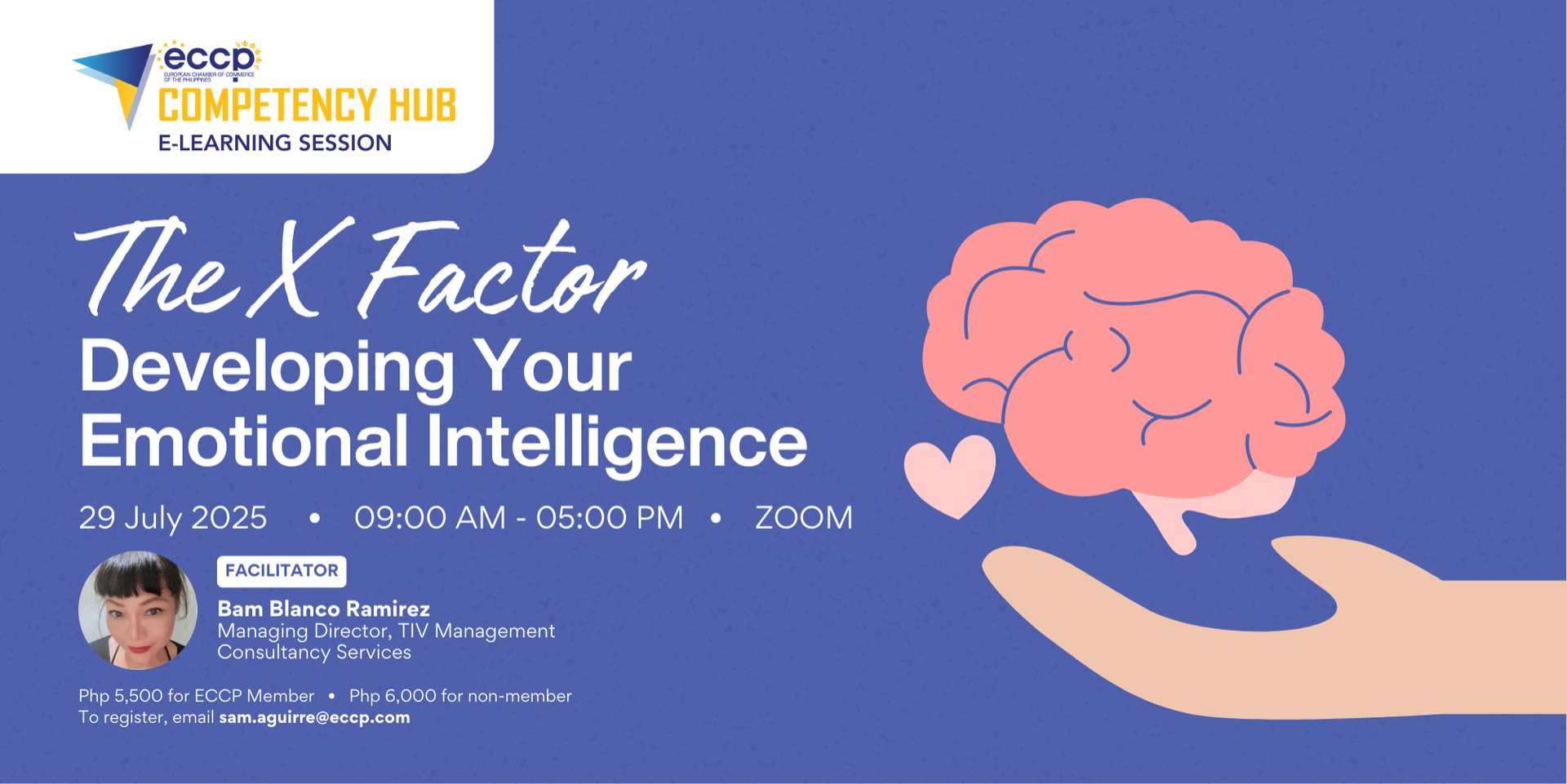
The X Factor: Developing Your Emotional Intelligence
Emotional intelligence is a skill. And like any other skill, you can get better at it with training and practice. It allows you to read the personality style of individuals and adjust your communications accordingly without being controlled by your underlying emotions.
This one-day session is useful for anyone who leads or works with other people no matter what size the organization is. This will focus on the five core competencies of emotional intelligence: self-management, self-awareness, self-regulation, self-motivation, and empathy. It also includes a review of your interpersonal skills.
You will learn to develop and implement these competencies to enhance your relationships in work and life by increasing your understanding of social and emotional behaviors and learning how to adapt and manage your responses to situations. This teaches you how to build stronger relationships, how to empathize with others, how to manage your stress levels, how to overcome challenging situations, how to diffuse personal conflicts and much more.
Objectives
• Recognize their own emotions and understand the link between emotional intelligence and performance.
• Strengthen the self-awareness involved in making appraisals of themselves and others.
• Self-regulate and self-motivate to recognize and respond to negative emotions.
• Handle conflict and emotionally-charged situations with empathy to prevent tensions from escalating out of control.
• Refine relationships and strengthen interactions with all personality types through social awareness and communication.
• Communicate more effectively, verbally and non-verbally, both in the workplace and in their personal life.
Program Outline:
1. Introduction
a. Agenda and Deliverables
b. Expectations
c. Ice breaker Activity: What makes them happy? What makes them sad?
2. Understanding Emotions
Emotional intelligence starts with understanding emotions and the competencies associated with it
a. The link between emotional intelligence and performance
b. The competencies of emotional intelligence
c. Activity: Recognizing one's own emotional intelligence
3. Strengthening Self-Awareness
Self-awareness is a major component of EI and a vital part of personal and career development
a. The importance of self-awareness
b. Major elements for increasing self-awareness
c. Factors involved in making appraisals of oneself and others
4. Achieving Emotional Balance
Emotional balance helps people manage their feelings and maintain professionalism daily
a. The importance of emotional balance
b. What does emotional balance look like?
c. Strategies and methods to achieve emotional balance
5. Crafting an Emotionally Intelligent Environment: Self-Regulate and Self-Motivate
Self-regulation is the ability to monitor and manage one's behavior, which is a needed skill in today's
world
a. Factors related to motivation
b. Physical signs of emotional turmoil
c. Process to use when negative emotions emerge
6. Handling Conflict with Empathy
In conflict resolution situations, handling issues with an empathic mindset is critical to a successful
outcome
a. How people respond to emotions
b. Conflict resolution techniques using empathic communication
c. Important communication skills to use in emotionally-charged situations
d. Role-play Activity
7. Refining Relationships Through Social Awareness and Communication
Social awareness is the ability to deal with societal, as well as interpersonal challenges. It enables a
person to relate effectively with everyone around them
a. Interpersonal skills needed to succeed at work
b. Communication styles and how best to relate with all personality types
c. Valuable communication strategies and techniques that foster effective relationships
8. The Role of Emotional Intelligence in Leadership
For a better outcome from employees, a leader needs to be able to understand one's own emotions
as well as the emotions of others
a. The relationship of EI and leadership
b. The emotional intelligence behaviors of effective leaders
c. The importance of emotional intelligence in leadership and the workplace
9. Applying Workplace Emotional Intelligence Tools
Research studies have shown that the most productive and motivated employees are those whose
leaders set an emotionally intelligent tone or atmosphere
a. The significance of team EI
b. Leadership strategies for developing team EI
c. Methods to help team members handle workplace stress
d. Open Discussion Activity
- Participants will be able to receive their unique links sent via ZOOM/ECCP prior to the start of the session.
- The ECCP reserves the right to reschedule or cancel any of its programs. Final confirmation of program date is advised at least two (2) working days before the program start date.
For registration inquiries, please contact Sam Aguirre at sam.aguirre@eccp.com.



